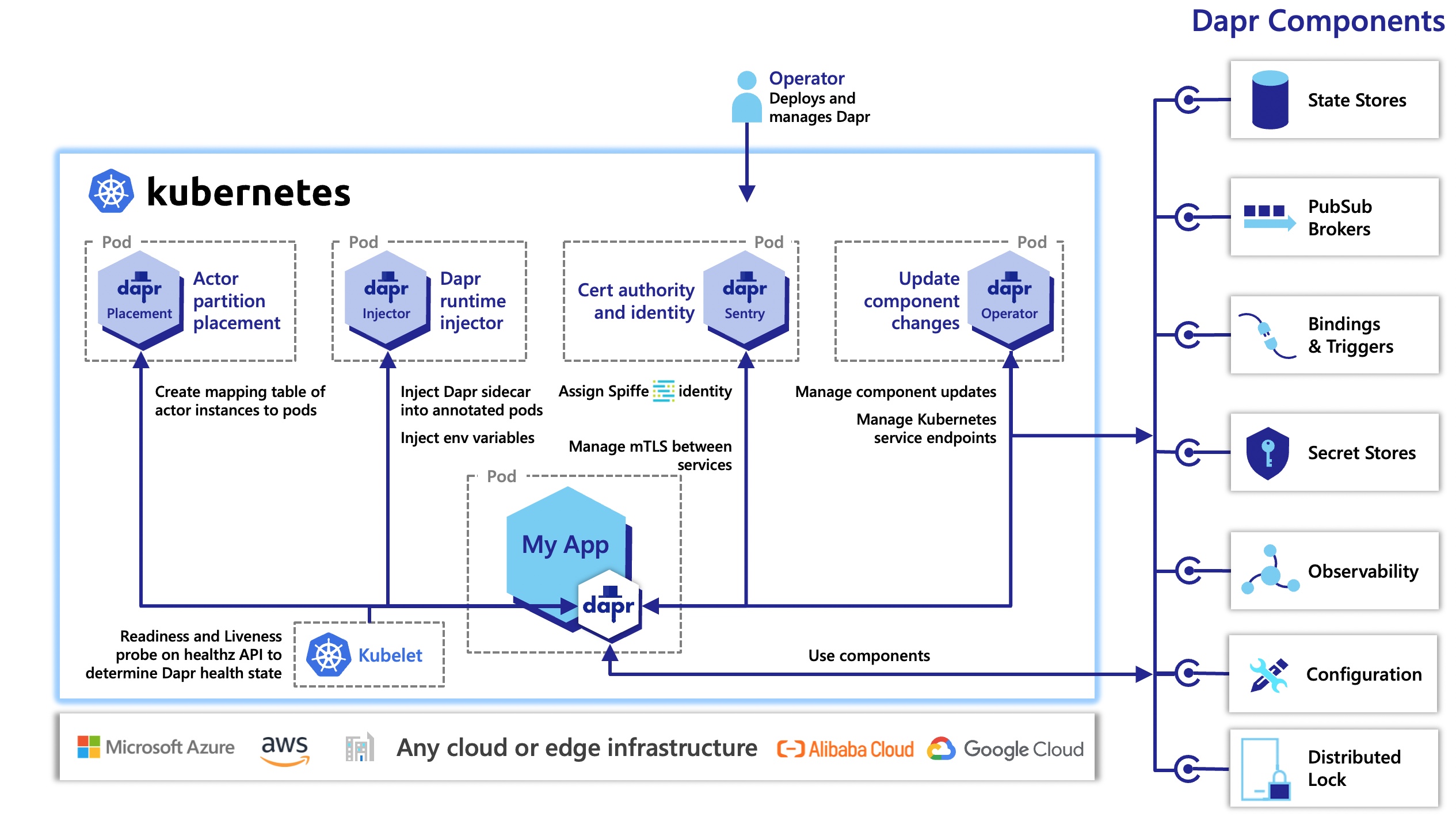The documentation you are viewing is for Dapr v1.9 which is an older version of Dapr. For up-to-date documentation, see the latest version.
Overview of Dapr on Kubernetes
Dapr on Kubernetes
Dapr can be configured to run on any supported versions of Kubernetes. To achieve this, Dapr begins by deploying the dapr-sidecar-injector, dapr-operator, dapr-placement, and dapr-sentry Kubernetes services. These provide first-class integration to make running applications with Dapr easy.
- dapr-operator: Manages component updates and Kubernetes services endpoints for Dapr (state stores, pub/subs, etc.)
- dapr-sidecar-injector: Injects Dapr into annotated deployment pods and adds the environment variables
DAPR_HTTP_PORTandDAPR_GRPC_PORTto enable user-defined applications to easily communicate with Dapr without hard-coding Dapr port values. - dapr-placement: Used for actors only. Creates mapping tables that map actor instances to pods
- dapr-sentry: Manages mTLS between services and acts as a certificate authority. For more information read the security overview.

Deploying Dapr to a Kubernetes cluster
Read this guide to learn how to deploy Dapr to your Kubernetes cluster.
Adding Dapr to a Kubernetes deployment
Deploying and running a Dapr enabled application into your Kubernetes cluster is as simple as adding a few annotations to the pods schema. To give your service an id and port known to Dapr, turn on tracing through configuration and launch the Dapr sidecar container, you annotate your Kubernetes pod like this. For more information check dapr annotations
annotations:
dapr.io/enabled: "true"
dapr.io/app-id: "nodeapp"
dapr.io/app-port: "3000"
dapr.io/config: "tracing"
Pulling container images from private registries
Dapr works seamlessly with any user application container image, regardless of its origin. Simply init Dapr and add the Dapr annotations to your Kubernetes definition to add the Dapr sidecar.
The Dapr control-plane and sidecar images come from the daprio Docker Hub container registry, which is a public registry.
For information about pulling your application images from a private registry, reference the Kubernetes documentation. If you are using Azure Container Registry with Azure Kubernetes Service, reference the AKS documentation.
Quickstart
You can see some examples here in the Kubernetes getting started quickstart.
Supported versions
Dapr support for Kubernetes is aligned with Kubernetes Version Skew Policy.
Related links
- Deploy Dapr to a Kubernetes cluster
- Upgrade Dapr on a Kubernetes cluster
- Production guidelines for Dapr on Kubernetes
- Dapr Kubernetes Quickstart
- Use Bridge to Kubernetes to debug Dapr apps locally, while connected to your Kubernetes cluster
Feedback
Was this page helpful?
Glad to hear it! Please tell us how we can improve.
Sorry to hear that. Please tell us how we can improve.